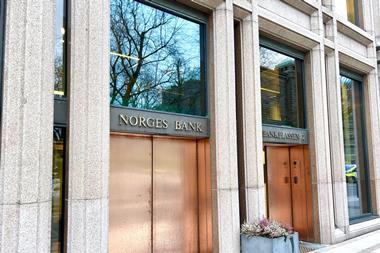The European Parliament will today vote on plans to strengthen the rules for investors around sustainability-related voting and engagement.
In what is now expected to be a dramatic and closely-run vote, MEPs will decide, among other things, whether the financial sector should be covered under the new Corporate Sustainability Due Diligence Directive (CSDDD).
More specifically, the parliamentary committee in charge of developing the plans wants the Directive to require investors to demonstrate they have used their ‘leverage’ over portfolio companies to mitigate human rights abuses and environmental harm.
It is the latest sign that rulemakers are strengthening their expectations when it comes to shareholder stewardship.
Historically, such expectations have been expressed through stewardship codes. The UK’s Financial Reporting Council (FRC) developed the first such code in 2010, and the model has since been exported to more than 20 other jurisdictions, including India, Canada, Kenya and Switzerland.
Some codes are market led, while others have regulatory backing. All deal with stewardship at entity level, rather than fund level, and the emphasis is on improving transparency around topics like voting policies, conflicts of interest, and how investors monitor companies.
“But stewardship codes weren’t developed to save the planet,” says Dionysia Katelouzou, an associate corporate law professor at King’s College London, and head of a 120-strong academic group dedicated to global investor stewardship research. “The original aim was to improve the value of companies by encouraging shareholders to get more involved in how they’re being run.”
She says that, over the years, that focus has changed.
“In the UK, for example, the code still talks about investors as shareholders, but their engagement duties are now about more than just raising the value of that company – they’re about managing systemic risks that might hurt the value of the entire portfolio.”
Under the current UK stewardship code, published in 2020, regulated asset owners and managers are required to “disclose the extent of their contribution and an assessment of their effectiveness in identifying and responding to systemic risks”.
Systemic risks, the FRC says, “are those that may cause the collapse of an industry, financial market or economy, such as climate change”.
The shift from asking investors to explain their policies – as outlined in previous iterations of the code – to asking them to explain the outcomes of those policies, has lengthened stewardship reports significantly, notes Katelouzou. But, like the EU, the UK looks set to ask investors to further demonstrate the credentials of their voting and engagement efforts.

Last November, the UK’s Financial Conduct Authority tasked a group of experts with exploring how rules for asset managers could be strengthened when it comes to disclosing their votes. A consultation is due to be launched later this month covering key topics, rules for explaining voting decisions, and the potential for a repository to house the information.
The FCA said at the time that “centralised and standardised voting disclosures” would help it to “verify aspects of asset managers’ claims about their stewardship activity… contributing to other initiatives that aim to reduce the potential harm of greenwashing.”
It would also encourage asset managers to provide good ESG voting services to asset owners, it added.
The initiative dovetails with work being done by the UK Treasury’s Transition Plan Taskforce, which is currently proposing that big asset managers and asset owners should explain in their climate transition plans how they engage with portfolio companies “to drive reductions of GHG emissions and/or deliver [their climate] objectives, priorities and milestones[…]” and “to influence behavioral and business model changes aligned with the entity’s strategic [climate] ambition and stated objectives and priorities”.
The European Commission wants the CSDDD to take a broader approach to sustainability than just climate transition: it says the rules will drive decent working conditions across global value chains and introduce “a high level of protection and improvement of the quality of the environment”.
Among many other things, the text being voted on in parliament today seeks to codify the notion of ‘leverage’ – part of the UN Guiding Principles on Business and Human Rights – into law, defining it as “the ability to affect change in the practices of the entity causing or contributing to the adverse impact”.
While the European Council wants to exempt the finance sector from the rules, if today’s proposals get through in one piece, it will give parliament a mandate to demand that investors who identify environmental or social harms in their portfolios use their leverage to: “[E]ngage with the investee company and exercise voting rights […] in order to induce the management body of an investee company to bring the actual impact to and end or minimise its extent.”
Nothing in the proposed CSDDD would hold asset managers liable for environmental or social harms in their portfolios, but it could pave the way for them to be fined or sanctioned for not engaging adequately on those harms. And civil society may find it easier to hold them accountable if their investment strategies fail to demonstrate progress on environmental and social issues.
The Principles for Responsible Investment, the Institutional Investor Group on Climate Change and Eurosif have all expressed support for most parts of the current text, and are keen to see it get through to trialogues. Elise Attal, who leads the PRI’s work on EU policy, says the CSDDD would provide investors with “an additional tool for engagement” with companies, but says the outcome of today’s vote is currently “difficult to predict”.
Key votes this week
TotalEnergies: A proposal calling for stricter climate targets, including Scope 3 emissions, caused embarrassment for Total’s management on Friday. The Follow This resolution, which has become a regular fixture on the ballots of oil majors in recent years, received more than 30% backing from shareholders – up from 17% the last time it was tabled (2020) – despite opposition from the board. Mark van Baal, the chief executive officer of Follow This, said the result marked a “shareholder rebellion”, buoyed by a recommendation of support from influential proxy adviser ISS.
ExxonMobil and Chevron: In line with broader trends, Follow This had notably less joy at US firms this year. It co-filed a resolution at Exxon with four asset managers – Achmea IM, Van Lanschot Kempen, Degroof Petercam AM and Arjuna Capital. But despite the investor leadership, preliminary results from yesterday’s annual general meeting (AGM) suggest that support tumbled from 28% last year to 11%. Likewise, Chevron escaped unscathed from a Follow This resolution yesterday, with an even greater plunge in support – down from 33% in 2022 to 10%.
Meta: Unsurprisingly, none of the 11 shareholder proposals filed at Meta’s AGM yesterday got majority backing. The Facebook parent company is well-known for its dual class share structure which gives CEO Mark Zuckerberg 60% of the voting rights, despite owning just 14% of the equity. The resolutions ranged from requests for an overhaul of the governance structure of the tech giant, through to calls for information on climate lobbying and content management.
Read the digital edition of IPE’s latest magazine

















